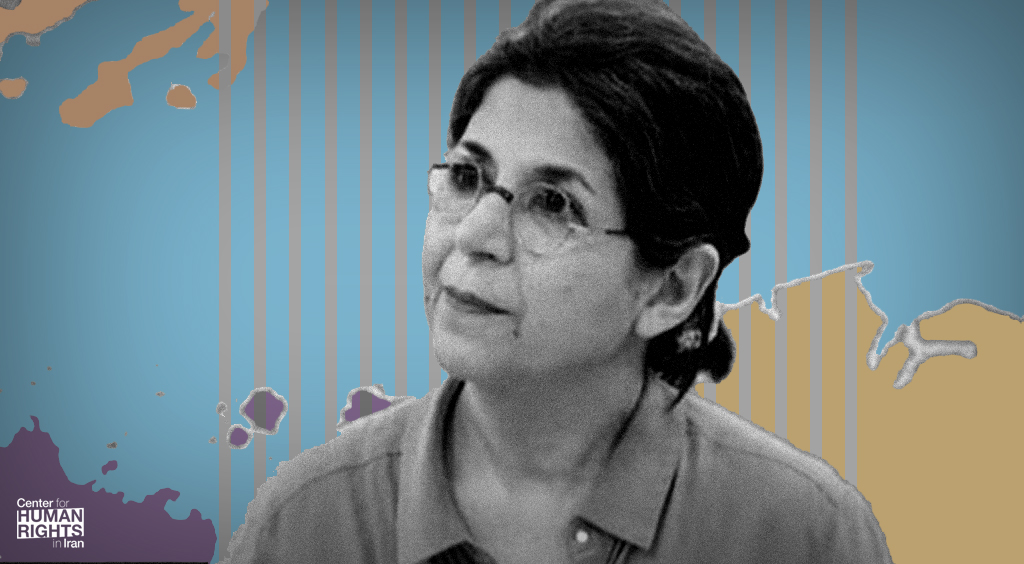Six-Year Prison Sentence Against French-Iranian Academic Unfounded, Lawyer Says
 Fariba Adelkhah, Imprisoned For Almost a Year, Is in Good Spirits But “Suffering Physically”
Fariba Adelkhah, Imprisoned For Almost a Year, Is in Good Spirits But “Suffering Physically”
The six-year prison sentence issued against Iranian-born French anthropologist Fariba Adelkhah has no legal foundation, her lawyer Saeid Dehghan told the Center for Human Rights in Iran (CHRI) on May 19, 2020.
He said Adelkhah had initially been accused of espionage but on the day of her trial the indictment included three additional charges.
“The first four pages of the verdict, meaning four-fifth of it, is completely a copy-paste of the indictment, with only a few added words. It’s unacceptable,” Dehghan said.
“Since the day she was arrested on June 6 [2019], Fariba had been accused of working for the French foreign service by contacting political, religious and national personalities and civil rights activists under the guise of academic research. That’s the charge we saw in the indictment: espionage,” he added.
“Then when we presented our last defense on December 22, 2019, we were surprised to see that they had added three more charges against Fariba: ‘assembly and collusion against national security,’ ‘propaganda against the state,’ and ‘disturbing public opinion’ by opposing the law regarding compulsory hijab and gender discrimination,” Dehghan said.
Iranian prosecutors have used “national security” charges to jail a number of Iranian dual nationals in recent years. Iran’s government says it does not recognize dual nationality but continues to trade dual nationals in prisoner swap deals. At least 10 dual and foreign nationals are currently detained or imprisoned in Iran.
At the time of her arrest, Adelkhah’s partner and fellow Sciences Po university colleague, Roland Marchal, was also taken into custody by the Islamic Revolutionary Guard Corps (IRGC). He was released on March 23 and allowed to return to Paris as part of a prisoner swap deal.
On May 16, 2020, Dehghan announced Branch 15 of the Revolutionary Court had sentenced Adelkhah, 61, to five years in prison for “assembly and collusion against national security” and one year for “propaganda against the state.” An appeal has been filed.
“As for espionage, the charge makes no sense because we argued in court that Fariba does not work for any Iranian state office and has no access to any state documents. She went to France two years before the (1979) Revolution. How could she be a spy without access to any documents? Ultimately, this charge was dropped.”
“Regarding propaganda against the state, the charge was very general and the prosecutors did not provide an explanation. As a result of our defense, they dropped the charge of ‘disturbing public opinion by opposing compulsory hijab’ but mentioned all her actions in support of the Girls of Revolution Street as examples of ‘propaganda against the state.’”
As for the charge of “assembly and collusion against national security,” Dehghan told CHRI: “There’s no proof she colluded with anyone. Who did Fariba collude with? Marchal has been freed. Did she collude with a wall? Marchal’s name was mentioned during the trial but he’s in Paris. You cannot accuse her of collusion.”
Incarcerated in Evin Prison for almost a year, Adelkhah is in good spirits but suffering physically, Dehghan said.
“Her morale is very high. She has organized French language classes for the prisoners and was put in charge of the library. But she is not well physically. She has kidney problems and she has difficulty walking.”
Adelkhah, who was detained in June 2019, has maintained that she is innocent of the charges. In December 2019, she and fellow academic researcher, British Australian citizen Kylie Moore-Gilbert, went on hunger strike “on behalf of all academics and researchers across Iran and the Middle East, who like us have been unjustly imprisoned on trumped-up charges and simply doing their job as researchers,” they wrote in a letter published by the Center for Human Rights in Iran.
Adelkhah is a specialist in social and political anthropology of post-revolutionary Iran and has been a researcher at the Sciences Po’s Centre for International Studies (CERI) since 1993.






